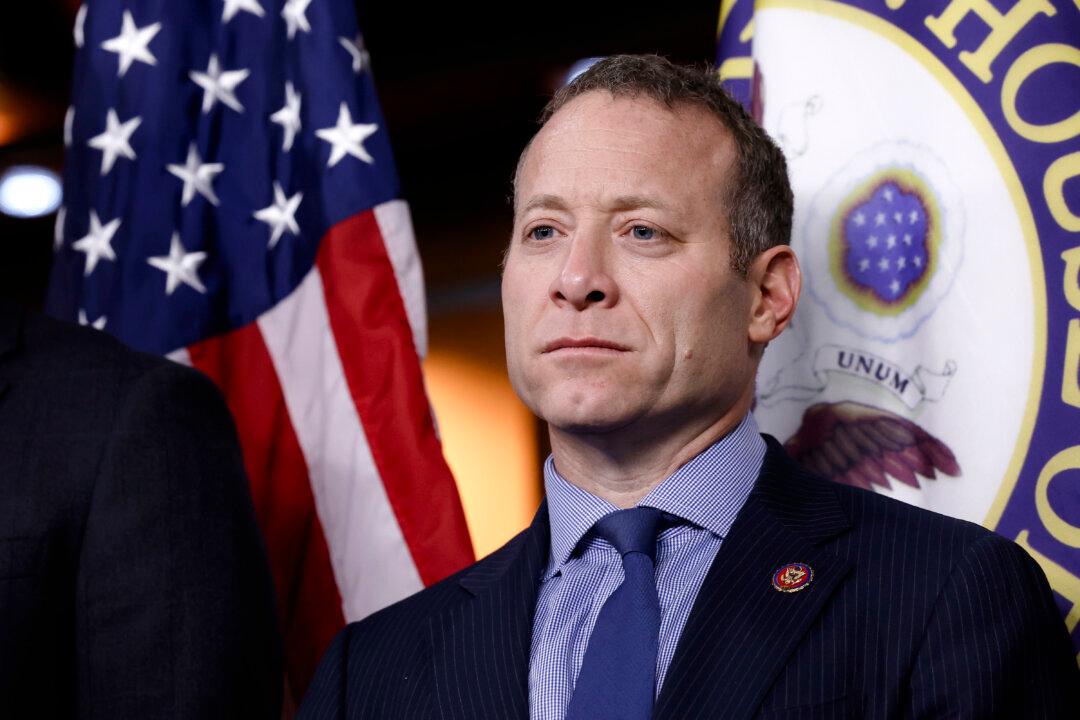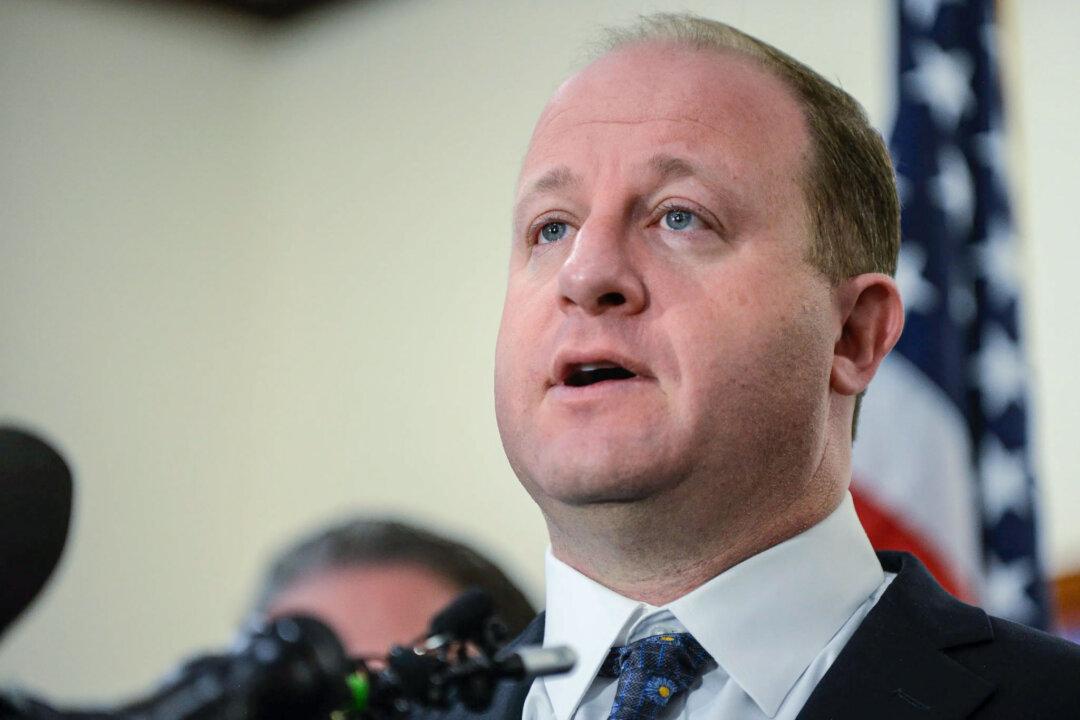Two U.S. agencies have been quietly studying neurological problems that have appeared in people who have had COVID-19 vaccines, The Epoch Times has found.
One attempt to gain understanding of a problem that experts around the world are struggling to understand is being carried out by Dr. Janet Woodcock, who was acting commissioner of the FDA until Feb. 17.
Woodcock, now the FDA’s principal deputy director, has been personally evaluating neurologic side effects from the COVID-19 vaccines since at least Sept. 13, 2021, according to the emails, many of which have not been reported on previously. FDA epidemiologists are also gathering data to look into the issues, according to messages from Dr. Peter Marks, another top FDA official.
A team at the NIH’s National Institute of Neurological Disorders and Stroke (NINDS), meanwhile, started seeing patients reporting vaccine injuries for a study in early 2021 after receiving complaints shortly after the vaccines were made available. A portion of the patients was examined in person at the Bethesda, Maryland, facility.
FDA
Woodcock was aware of reports of post-vaccination issues by April 16, 2021, according to the emails.Woodcock said she was sorry for the ordeals people were going through and that she was trying to find ways to examine what was happening. Eventually, she disclosed that she was working on an evaluation of “neurologic side effects from the COVID 19 vaccines,” according to a Sept. 16, 2021, email reviewed by The Epoch Times.
Prodded by people with diagnosed vaccine injuries, Woodcock insisted she was still working on the project.
“I am awaiting some information from the epidemiologists that I expect to get tomorrow,” she wrote on Nov. 16, 2021. “We are having difficulty pinning down these nervous system-related events that have been brought to our attention. I’ve asked for specific searches of the reports we get both from here and ex-U.S. (as these vaccines have been used in many countries) as well as from trials, where oversight of participants is greater.”
Woodcock said she was aware that people who suffer issues after getting vaccinated were looking for guidance on treatment but that there was “not a lot of certainty about what causes the symptoms.”
Woodcock confirmed to The Epoch Times in an email that the evaluation is still ongoing and has not been completed.
“When we know something definitive, we will put out a statement if warranted,” she said.
The FDA regulates vaccines, medical devices, and cosmetics, in addition to other products.

Marks, who heads the FDA’s center in charge of regulating vaccines, wrote in one email in November 2021 that epidemiologists at the FDA are “looking into this.”
“I work closely with them, and know that they are very committed to understanding whatever adverse events might be attributable to the vaccines that we regulate,” he added.
Marks has met with patients reporting vaccine injuries on multiple occasions, according to emails reviewed by The Epoch Times. He has been alerted to both cases and studies regarding potential vaccine injuries. He often writes that the FDA will work through the papers and keep following up.
“We will continue to carefully evaluate all serious reports of adverse events following COVID-19 vaccination and are committed to transparency about any findings,” he said in one missive.
Marks declined to answer questions, forwarding them to FDA spokespersons.
“The chance of having these events occur is very low,” the spokesperson said. “To date, the systems for monitoring COVID-19 vaccine safety have not identified additional safety signals for serious neurological outcomes following COVID-19 vaccination.”
U.S. officials have found that many reports submitted to VAERS don’t actually represent side effects due to a vaccine, for reasons such as the diagnosis being incorrect, the condition in question cropping up before vaccination, or the patient having underlying medical conditions “that explain the adverse event,” the FDA spokesperson said. Studies show the number of reports to VAERS often underrepresents problems following vaccination. As proof that “signals of rare adverse events can be detected,” the spokesperson pointed to how the government identified six adverse event reports, including three deaths, or of TTS following vaccination with the Johnson & Johnson vaccine.
‘Neurological Side Effects’
Dr. Avindra Nath, clinical director of the NIH’s NINDS, headed a team that examined patients who experienced serious neurological issues.Some patients flew to Bethesda, Maryland, for in-person examinations, while others consulted with NIH experts remotely.
Nath and Dr. Farinaz Safavi, one of Nath’s top deputies, have said they believe the issues are linked to the vaccines.
“We started an effort at NIH to look at neurological side effects of COVID-19 vaccines,” Safavi said in an email to one of the patients on March 3, 2021.
“We believe the symptoms to be real. That is the reason we have been treating patients,” Nath said in a different message on July 27, 2021.
Patients initially expressed gratitude to the team for helping them. Many had struggled to get care from local physicians when detailing how they got vaccinated before the problems started.
“Finally at the NIH, I was able to get appropriate diagnoses,” Brianne Dressen, a preschool teacher who lives in Utah, told The Epoch Times. “After I was able to get those appropriate diagnoses from lead researchers in COVID, my doctors started taking me seriously.”

Dr. Danice Hertz, a retired gastroenterologist who lives in California, was seen virtually by NIH experts. They did not give her a definitive diagnosis. But Safavi wrote in one message to Hertz, “What is clear here [is] that you have developed immediate reaction to the vaccine with some systemic symptoms continued by evolution of neuropathic features.”
“We know as a fact that immune-mediated neurological complications can happen post vaccination and post infection,” she added.
Other people who experienced problems after being vaccinated told The Epoch Times that attempts to get help from the NIH or other agencies weren’t successful. Angelia Desselle of Louisiana, for instance, was told she would be able to travel to NINDS and be seen but stopped hearing from the institute before the visit was finalized.
Disappointment
Even among those examined, the excitement of connecting with top researchers and government officials turned to disappointment and frustration when repeated queries yielded few signs of progress on research into post-vaccination problems.Woodcock and Marks would often only provide updates after being prodded, and neither have thrust the conversation happening in private into the public realm.
Nath and Safavi also grew distant as 2021 wore on. They eventually stopped examining patients. Nath urged Dressen to stop referring people to him, telling her that “we do not have any clinical trial for ... vaccine related complications.”
Dressen responded in January that she will “always be indebted to you and what you did for me,” crediting Nath, alongside her husband, with keeping her alive. However, she added, her “heart is shattered.”
“I am more confused now than ever about what my active and willing engagement in the scientific process actually meant, or has led to,” she wrote. “This will be the last email I send.”
“Looking back on this, I can see how unethical it was even when they were helping us,” Dressen told The Epoch Times.
Private calls and communication with physicians treating patients for reported vaccine injuries took place, but no broader recommendations were unveiled, and federal officials have continued pushing vaccination for virtually all Americans.
Hertz described being shocked about the lack of public acknowledgement of the post-vaccination issues by the FDA, which cleared the Moderna and Pfizer vaccines in December 2020 and has since authorized Johnson & Johnson’s shot.
Conflicting Messages
Patients feel government officials and scientists are delivering one message to the public and another in private.Nath, for instance, told Science magazine recently that he’s not sure whether the vaccines led to patients’ serious health problems.
“You have to be very careful,” Nath told the magazine, because “the implications are huge” in making “the wrong conclusion.”

When making a virtual presentation in May 2021, Nath seemed to sound a different tune. Showing a slide titled: “Can COVID-19 vaccines cause neurological complications,” with some of the complications like Bell’s palsy listed, Nath said that the vaccines “are very safe, but we started to see some neurological complications with them.”
And in an email on Sept. 16, 2021, Nath seemed to let some exasperation show while indicating the vaccines have caused some adverse events.
“Ordinarily when any drug is released, it is the manufacturers responsibility to investigate and treat the side effects. Where are the vaccine manufacturers in all of this? Have you tried to contacting them? It cannot be the government’s responsibility to pick up after them. They are a [for] profit company and they should be the ones taking change [sic]. Don’t you think?” he wrote.
Dressen said she sees different standards when associating conditions with COVID-19 versus linking them with COVID-19 vaccines.
“It’s pretty convenient that those associations can be easily tied to COVID and it’s also kind of strange because Nath himself told me many times that it’s an immune mediated process to spike protein,” which is part of COVID-19 and the vaccines, she said, adding that she’s looking forward to the data being published.
‘Left Out in the Cold’
“These victims of vaccine injury are left out in the cold and I can imagine how upset they are,” Barbara Loe Fisher, president and co-founder of the National Vaccine Information Center, which pushes for transparency surrounding vaccines, told The Epoch Times.Asked whether his team has made progress in identifying why some people suffer neurological issues after getting a COVID-19 vaccine, Nath told The Epoch Times, “We do not know what makes some people vulnerable to complications from vaccines in general.”
“This will require large epidemiological studies to determine comparisons between vaccines,” he added in response to a question about one of the vaccines being linked to more cases than the others.
Nath said his team stopped treating patients because “clinical care is best provided by clinicians in the community or other academic institutions.”
Nath submitted his team’s findings as an observational case series to two medical journals in March 2021, but neither accepted the manuscript. “No reason was given,” a spokesperson for NANDS, Nath’s agency, told The Epoch Times in an email. They declined to name the journals. The Epoch Times has filed Freedom of Information Act requests for the manuscript and additional missives from Nath and Safavi. The study was still ongoing in mid-2021, and Nath told Science magazine that the team sent a case series of 23 patients to a third journal in January.
“There is no data showing that the vaccines caused the symptoms in these patients. It is important to note, there is a difference between causation and association. Causation means that the exposure produces the effect and is usually determined by a large epidemiological study. An association is a relationship between two variables, but one variable doesn’t necessarily cause the other variable to happen,” the agency spokesperson added.
That view isn’t universal.





